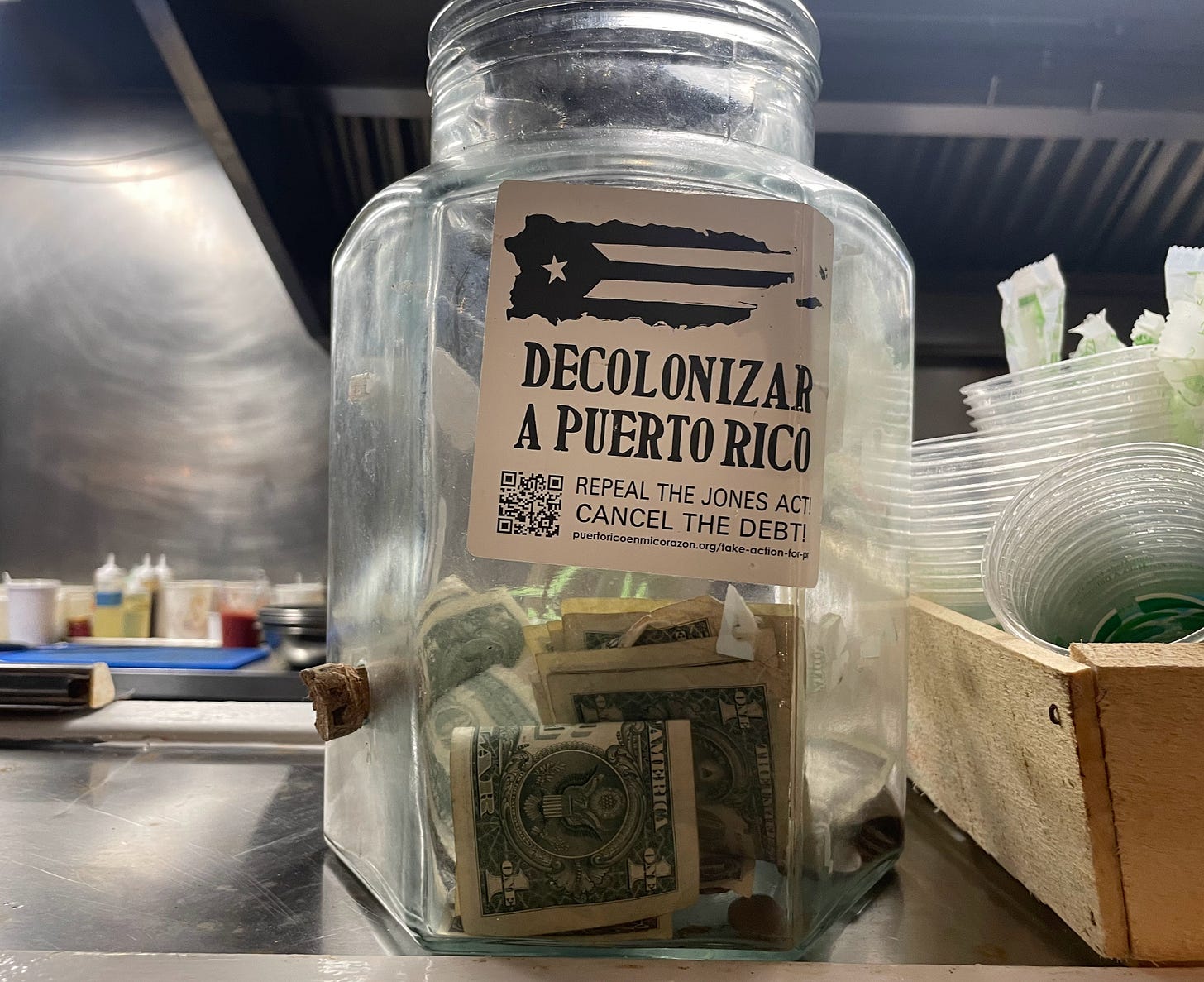Cyberspace, Meet Meatspace
We may call it a digital world, but it's never far from the physical.
Over a decade ago, some theorized the internet would open up vast, borderless digital spaces — places unbounded by physical geographies and governments, rules and regulations and all the rest of that old-school bureaucratic kerfuffle.
But of course, the digital almost always butts up against the physical. Cyberspace is grounded in meatspace — or at least, the people inhabiting it are. While a Mexico City resident may not think much about the physical location of those in her Twitter feed, she sure as hell will when they descend into her city and raise her rent.
When I decided in my mid-twenties to work toward a technology career, some of the decision was driven by a desire to live and work wherever I wanted. “Digital nomad” wasn’t a term that existed then — or at least, one I knew — but the ability to move cities and even countries without changing jobs was appealing to me even then.
And as we’ve seen the past few years, I’m not the only one who thought so. But there’s a dark side to this, and residents of low-income countries pay much of the cost.
I spent a few days last spring visiting Mexico City with friends. I’d been before, and noticed how much more expensive the popular, hip neighborhoods like Roma and La Condesa had become since my last visit. I knew many Americans moved to the city during the pandemic, but hadn’t appreciated how rapidly it was changing.
I rode an Uber to dinner with a driver named Gustavo, and mentioned the surprisingly high prices. He reacted like he’d been dying to talk about it, and said he didn’t mind the influx of foreign wealth and currency himself, since they brought him more business driving Uber. But his friends sure did, frustrated to find themselves rapidly priced out of their home city — and largely by people from a country that’s historically demonized them, to boot.
“Now the Americans are the immigrants,” Gustavo told me his friends would joke.

It’s not just Mexico City that’s seen a flood of digital nomads over the past several years — and a wave of gentrification following soon after. Medellin, Spain, Portugal, Bali, and plenty of others have seen recent bouts of long-term visitors seeking low-cost living. Statistics are fuzzy, but by several estimates digital nomadism increased more than 300% from 2019 to 2022 alone, spurred by the pandemic.
Wealthy Westerners have for decades moved to Mexico or Thailand or Bali to retire in cheap comfort. But at perhaps no other time in human history has it been possible for a great number of people to live in one place and earn wages commensurate with another.
Unsurprisingly this has caused some problems. Rents in Mexico City have risen 30% since the pandemic, and over the past five years Lisbon has seen a similar rise, “making it a more expensive place to rent than Milan, Madrid and Berlin.” And even across Portugal, “house prices have nearly doubled since 2018, the highest appreciation rate in Europe.”
Residents of highly-prized neighborhoods see even greater price hikes. Rents increased a phenomenal 60% in La Condesa, a ritzy Mexico City neighborhood, and 80% in only four months the Laureles neighborhood of Medellin, Colombia.

It’s tempting to place blame for these changes squarely at the feet of the “nomads” ushering them in, but governments of the places attracting them are complicit too.
According to the website Nomad Girl, a surprising 58 countries provide some kind of “digital nomad” visa today. And Mexico City, Airbnb, and (bizarrely) UNESCO declared Mexico City a “remote working hub” in 2022.
The Puerto Rico government in 2012 passed legislation, like Act 22 and Act 60, encouraging foreign investment — and bringing wealthy foreigners and mainland Americans to the island. Act 60 in particular provides massive tax benefits on passive investment income for mainland Americans, and following the crypto boom of 2021 — at a time when remote work was in full swing — it’s led to a large influx of cryptocurrency investors.
“Remote workers have a lot to contribute to Mexico City and that is why this alliance is so important,” said Diana Alarcón, a representative of the city’s remote work hub collaboration with Airbnb and UNESCO. But just as scholar Kentaro Toyama writes, technology only amplifies human intent. And remote workers won’t necessarily contribute positively to the community where they land.
I have friends living in a shared digital nomad-type home in Puerto Rico, and I even spent six weeks there myself during the pandemic. They’re highly aware of the potentially problematic nature of their life there, and take big, intentional steps to try mitigating the harm their presence may cause.
But it’s still not perfect, and not everyone does this. I assume the vast majority do not.

Estonia offers foreign citizens an “e-Residency,” which on its face appears a sort of inversion of most digital nomad visas. The program allows people (and especially businesses) to utilize the Estonia’s online services and administration without physically relocating there.
Kaspar Korjus, former managing director of the e-residency program, believes it can be “useful for internet entrepreneurs in emerging markets who don’t have access to an online payment provider.” And it’s attractive to some in countries like Ukraine or Belarus who lack access to banking and payments infrastructure.
When I first heard of Estonia’s program, I thought it might stand as a real example of the kind of borderless digital world Eric Schmidt and Jared Cohen outlined in their 2013 book The New Digital Age. Both were former high-ups at Google — Schmidt was an early CEO — and the authors looked ahead to a time when you “might retain a lawyer from one continent and use a Realtor from another.”
But the program is a far cry from this. The country’s government stresses that “e-Residents” will still pay their taxes and seek health and retirement services back home. And it’s hard to imagine what true “residency” in a country looks like if it doesn’t allow “residents” to utilize any of the vital services one might need to live.
While Estonia’s e-Residency provides digital benefits without offering much in the physical world, digital nomad programs bring people to physical neighborhoods in physical cities. And they’re now seeing physical pushback from the people who’ve lived there for years.
Some in Puerto Rico have begun clamoring against those whom legislation like Acts 22 and 60 brought to the island. One of them, Federico de Jesús, co-founded the media project Losing Puerto Rico to highlight the changing nature of the island and advocate for policy changes there. And in Medellin, local resident Ana Maria Valle Villegas hung up posters printed with phrases like “Gentrifier, Go Home,” and “Digital Nomads, Temporary Colonizers,” that drove significant local discussion about the root causes of the city’s housing costs.
Just last week, Barcelonans fiercely protested against tourists in the city — and the government they blame for allowing so many in. Rental prices there have risen 68% over the past decade, and some place much of the blame on a steady increase of short-term Airbnb rentals reducing the housing supply. A recent report published by Barcelona’s city council found that half of respondents modify where they spent time to avoid tourist traffic, and that “more and more people believe that Barcelona has reached its tourism capacity limit.”

Evgeny Morozov wrote in his review of The New Digital Age that the authors espouse “what might be described as the “two-world hypothesis” — one world analog and old-school, and the other digital and gleaming, a vast frontier full of possibility:
“Their unquestioned faith in the two-world hypothesis leads Cohen and Schmidt to repeat the old chestnut that there exists a virtual space free from laws and regulations. Their view of the Internet as ‘the world’s largest ungoverned space’ was quite fashionable in the 1990s, but in 2013 it sounds a tad outdated. Consider their employer, Google. The company knows very well that, for all the talk of virtuality, it still has bank accounts that may be frozen and staffers who may be arrested. Just how good is it to be the king of the ‘world’s largest ungoverned space’ if your assets and employees are still hostage to the whims of governments in physical space? Does anyone at Google really believe in the existence of ‘an online world that is not truly bound by terrestrial laws’? Where is that world, and if it exists, why hasn’t Google set up shop there yet?”
These are all good questions — and if the idea of the Internet as the world’s “largest ungoverned space” was outdated in 2013, it certainly is ten years later.
Indeed, the digital world — whether enabling email marketing from a beach in Bali, or business administration via an “e-residency” in Estonia — may allow us to feel like things are different out there, in the cloud. Somehow, vaguely: newer, better, freer.
But at the day’s end, we still live and breath and remote work in a very physical world, and are bound by its constraints. The citizens of Medellin, Mexico City and Puerto Rico may not care where a digital nomad lives when they encounter them online — but that all changes in a flash when they move to their cities and raise their rents.
Song of the Week: Joe Yorke & The Eastonian Singers — Gentrification




